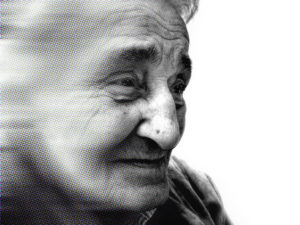Strong Mind = Strong Body!

Our work and our jobs are just obligations which we need to do in order to survive. On the other hand, it is our hobbies that shape us, define our personalities and the people surrounding us. At times, the prospect of these engagements is the only thing that gets us through the day. But what happens once we retire? What happens when we reach our 70’s and 80’s and stop meeting people that we used to meet every other day?
With no work and no social hobbies, seniors begin to have too much free time on their hands, which subsequently leads to loneliness, negative thoughts and an identity of loss. It’s time we understand that more social engagements mean better senior living.
There are several ways to achieve a Strong Mind:
Make New Friends
We are not asking these seniors to forget about their old friends. As a matter of fact, it couldn’t be better if they remain in constant touch with those friends. However, in most cases, older friends are not as frequently available as they used to be. Some might be having their own health issues, some might have moved out of state or some might have just disappeared. Regardless, new and positive people in our lives are like a breeze of much needed fresh air.
Get Out of the House
The world always feels like a much better place once we are out in the open. It helps to maintain a routine to keep yourself busy. For instance, just going for a walk every morning could open the doors of adventures and an excellent source of making new friends. Just be sure to be generous with your smile.
Taking Classes
A great way to expand the mind and keep those neurons going, as well as finding new friends. Social meeting classes also gives the senior a new hobby to enjoy. Many nursing facilities offer classes in many subjects and if your elderly one is not in a home, they can take any number of interesting classes geared for their age at continuing education courses offered by many colleges and universities, as well as their local YMCA or YMHA.
Find Dining Partners
Invite people for tea or dining as frequently as possible. In fact, keeping an open invitation for tea will surely lead to pleasant surprises every now and then. Dining together provides an excellent time to talk and share your feelings with others. Research proves that being social helps lower risks of diseases.
Take Part in Social Events
No matter where you live, there is always some sort of senior group activity going around. Becoming part of knitting circles and book groups help seniors not only socializing, but also provides them some sense of purpose in their life and prevents them from succumbing to off-putting thoughts.
Tech Savvy
This advice is more for the people surrounding and taking care of the seniors rather than the seniors themselves. With technological advancement at the forefront, every single piece of equipment comes attached with it. So, why not let the seniors make use of it too? If an elder person is having trouble listening, then provide them with the latest hearing aid. Are they having trouble walking? Are they dependent on someone to push their wheelchairs? Then find one with automatic controls for them. Let technology make their life easier and positive.
Just being a senior and retiring doesn’t mean all the best things in their life have to end. If anything, this is the time to give them the most attention, care and company to spend their time with. Add in a hobby in the mix and you’ll be looking at a happy and a healthy senior.




 Studies have shown that good
Studies have shown that good